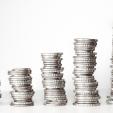Dollar falls against euro on weak U.S. housing data
Frankfurt (Feb 21) The dollar fell against the euro on Friday after weak U.S. housing data stoked concerns about the American economy, but remained on track for its first week of broad gains against a basket of major currencies in three weeks.
The greenback also rose to a three-week high versus the yen.
The National Association of Realtors said that home sales dropped 5.1 percent to an annual rate of 4.62 million units in January, an 18-month low. The data added to recent weak U.S. economic data on retail sales and homebuilder confidence.
The euro hit a high of $1.3759 against the dollar and was last trading up 0.08 percent at $1.3725, putting the dollar on track to notch its third weekly loss.
"The weak existing home sales data was a negative for the U.S. dollar and helped the euro," said Scott Smith, senior corporate foreign exchange trader at Cambridge Mercantile Group in Calgary, Canada.
The dollar was also down 0.2 percent against the Swiss franc at 0.8877.
The dollar was little changed against a basket of major currencies, however, at 80.307. The dollar index .DXY has regained some footing after touching a trough of 79.927 on Wednesday, its lowest level since late December.
Despite the latest weak U.S. economic data, traders have been reassured after the release on Wednesday of the minutes from the Federal Reserve's January 28-29 policy meeting that the Fed's asset reduction plan remains intact, Smith of Cambridge Mercantile said.
The minutes showed that several policymakers wanted to emphasize that their asset purchase program would be trimmed in predictable, $10 billion steps unless the economy's performance surprises them.
"There have been expectations that the Fed may not taper at the same pace as before, which weighed on the dollar," said Manuel Oliveri, FX strategist at Credit Agricole. "But it looks like, judging from what we saw from the Fed minutes, that data needs to deteriorate very sharply for the Fed to do that. Hence we are seeing the dollar recover."
Against the yen, the dollar edged up 0.4 percent to 102.66 yen, moving away from Thursday's intraday low of 101.67 yen. It hit a peak of 102.82 yen, its strongest level since late January. A jump in the Nikkei index .N225 weighed on the safe-haven yen and gave the dollar an additional boost.
Traders are watching for developments from this weekend's Group of 20 meeting of finance ministers and central bank chiefs in Sydney, where global growth and recent turmoil in emerging markets are expected to be in focus.
Emerging market officials are pushing for a discussion of the impact of the Fed's stimulus withdrawal on their economies, a top Russian central banker said on Friday.
But the Fed's focus is likely to remain on U.S. economic conditions rather than the implications of tapering on emerging markets, analysts said.
Lutz Karpowitz, a currency analyst at Commerzbank said that the United States can point out that the G20 had agreed a year back that monetary policies had to be adjusted to national requirements.
"So it is unlikely that we will see any more in Sydney than promises to implement responsible monetary policy and to communicate it clearly," Karpowitz added.
Highlighting the continued selloff in emerging markets on Friday, the Chinese yuan fell to its lowest since mid-October against the dollar in the offshore market.
Data came in below expectations in Sweden, too, on Friday. Both consumer and manufacturing confidence fell in February, weighing on the Swedish crown. The euro rose 0.4 percent to 9.0102 crowns, its highest level in two months.
Source: Reuters













